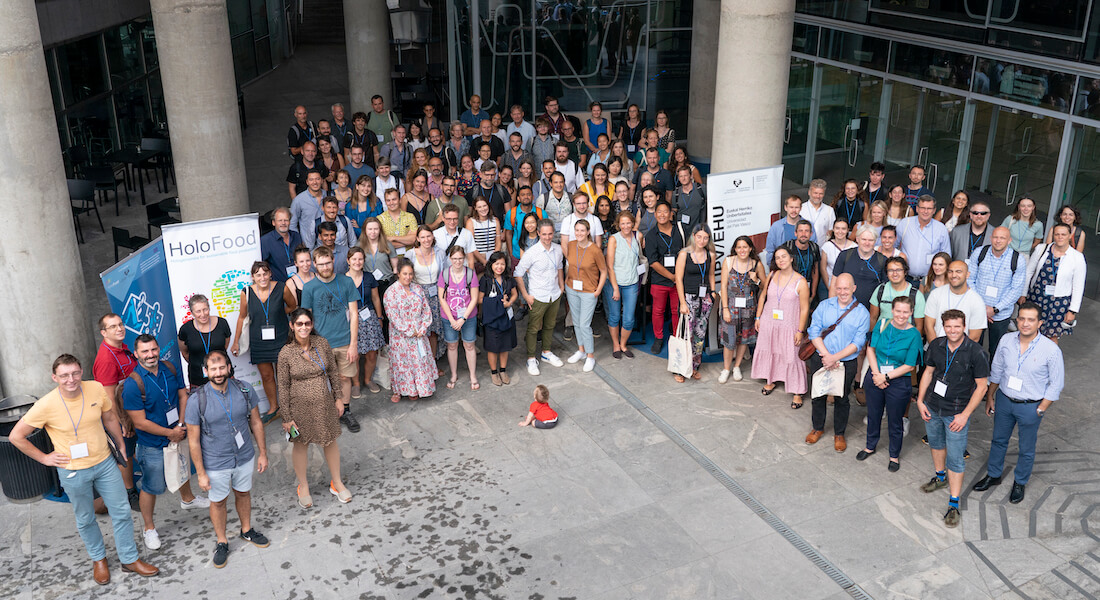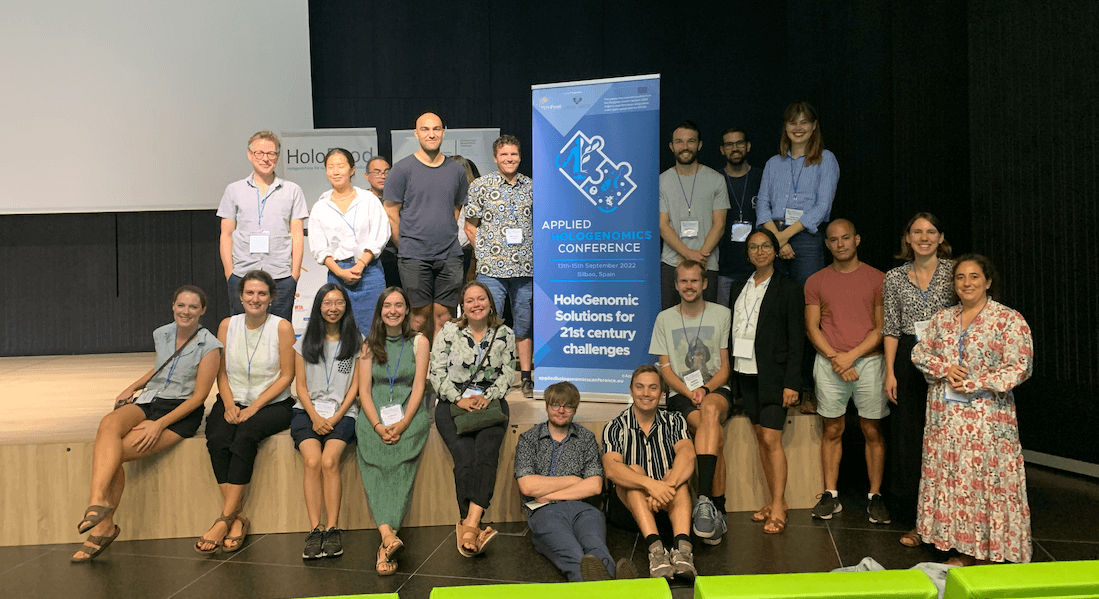Interdisciplinary interactions in Bilbao – first ever Applied Hologenomic conference
In the middle of September 2022 people came from all over the world to Bilbao in the Basque Country to attend the first ever Applied Hologenomics conference. The conference consisted of three days of exchanging research, developing social connections, and celebrating the emerging field of host-microbiota interactions.

On the 13th of September 2022, 130 people from all over the world gathered in the city of Bilbao in the Basque Country, Spain for the start of the first ever Applied Hologenomics conference. The conference ended on the 15th of September, and set the scene for three days of talks, presentations, discussions, and knowledge exchange, all within the interdisciplinary field of hologenomics. In addition to the in-person attendees 90 people attended the conference online, making the total number of attendees well over 200 people.
The conference was hosted by the HoloFood Innovation Action and was organised by the University of Basque Country with support from the Center for Evolutionary Hologenomics. It had over 31 talks and 50 poster presentations, and was, according to the attendees and organisers, a huge success, with many attendees expressing a wish for a follow up conference in the future.
Open collaboration, networking, and genuine connections
According to project manager Anna Fotaki the reason behind this success is manyfold.
“I think the success is due to multiple factors: the wide scope and approachability of the conference, the combination of top-level invited speakers and opportunities for early career researchers to share their work which made it appealing to a much wider audience. We were strategic in advertising the conference well in advance and made sure that the schedule would accommodate ample time for people to connect – we hoped that our core centre ethos of open collaboration, networking, and genuine connections was emphasised leading up to and during the conference.”
Anna also highlights the interpersonal connections and opportunities as what made the conference special and successful to her. “For me personally the biggest success was to see so many people make connections that would not have otherwise happened perhaps as easily and leave with hopefully new inspiration in what they do. I look forward to seeing how this field progresses and what exciting research comes out of such an event.”
Inspiration and scientific growth
Anna is not the only one highlighting the connections made, and the potential opportunities growing from these, as one of the main reasons behind the success of the conference. Associate professor Morten Tønsberg Limborg agrees, and he emphasises “that hologenomics, being a method, brings together people from vastly different disciplines and research systems. This created a discussion where most of us got inspired to make great leaps in our respective research programs compared to more specific conferences where you mainly interact with people like yourself.”
In this way the conference was a place of inspiration and potential scientific growth, and Morten gives an example of how this was experienced for him personally. ”For example, I just realised at this conference exactly how broadly transcending my own research in fish microbiomes is across other disciplines; and the same goes the other way in e.g. just how relevant research in the evolution of mammalian milk is for the fish I investigate.”
An inclusive space
The format of the conference also allowed for early career researchers to have a go at presenting and discussing their research. Two of the people doing this were PhD students Ana Cuesta Mate and Eirikur Andri Þormar. Ana presented a poster with the title “Social bee microbiomes are the missing link in the origin of human fermented foods”, and she described the experience as eye opening, and that she got “diverse and interdisciplinary input, that will be critical in how I develop my project.”
Eirikur did an oral presentation at the conference about “Elucidating host genetic effects on the microbiota using zebrafish and CRISPR/Cas – a hologenomic approach”. When asked about the entire experience of being at the conference as well as presenting there, he said:
“In one word, the conference was simply awesome. It was such a well-organised event with tons of great research presented by the lovely bunch of people present. It really made an impression seeing hologenomics applied in such a wide variety of ways across different fields. Presenting at the conference was an intimidating pleasure which resulted in inspiring chats, good input, and potential collaborations. So overall it was a cracking experience with lots gained and loads of good memories.”
Looking forward
After the success of the first ever Applied Hologenomics conference, it is safe to say that Professor Tom Gilbert and all the staff at the Center for Evolutionary Hologenomics are eager to follow up with another conference in two years’ time, this time located in Copenhagen.

Contact:
For more info contact Outreach and Project manager for HoloFood
Anna Fotaki anna.fotakis@sund.ku.dk
